The Complete Guide to Weight Loss: Transform Your Life for the Better
Weight loss is a topic that resonates with many, often stirring feelings of hope, frustration, and determination. Whether you’re looking to shed a few pounds for health reasons, boost your confidence, or simply feel better in your own skin, embarking on a weight loss journey can be both rewarding and challenging. In this comprehensive guide, we’ll delve deep into effective strategies for weight loss, drawing on scientific principles, practical tips, and motivational insights to help you achieve lasting results.

Understanding Weight Loss
What is Weight Loss?
At its simplest, weight loss occurs when you consume fewer calories than your body uses. This creates a calorie deficit, which prompts your body to burn stored fat for energy. However, the journey isn’t just about counting calories; it encompasses making healthier food choices, engaging in regular physical activity, and nurturing a positive mindset.
The Science Behind Weight Loss
The fundamental principle of weight loss is the balance between calories in and calories out. When you eat more calories than your body expends, you gain weight; when you consume fewer, you lose weight. This balance can be influenced by several factors, including:
- Basal Metabolic Rate (BMR): The number of calories your body needs at rest to maintain basic physiological functions.
- Physical Activity Level: The calories burned through exercise and daily activities.
- Thermic Effect of Food (TEF): The energy required to digest, absorb, and process nutrients from food.
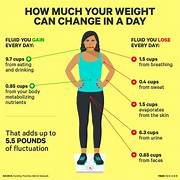
Setting Realistic Goals
Why Goals Matter
Setting realistic, achievable goals is crucial for long-term success. Instead of aiming for rapid weight loss, which can lead to muscle loss and nutritional deficiencies, focus on losing 0.5 to 1 kg (1 to 2 pounds) per week. This gradual approach is more sustainable and promotes healthier habits.
SMART Goals
Utilise the SMART criteria to set effective weight loss goals:
- Specific: Clearly define what you want to achieve (e.g., lose 5 kg).
- Measurable: Track your progress with measurable milestones.
- Achievable: Ensure your goals are realistic and attainable.
- Relevant: Align your goals with your overall health objectives.
- Time-bound: Set a timeline for achieving your goals.
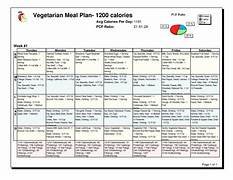
Nutrition: The Foundation of Weight Loss
1. Embrace Whole Foods
Incorporate nutrient-dense whole foods into your diet, such as fruits, vegetables, lean proteins, and whole grains. These foods provide essential vitamins, minerals, and fibre, helping you feel full and satisfied.
2. The Power of Protein
Protein is essential for muscle repair and growth, and it can help you feel fuller for longer. Include sources like chicken, fish, eggs, legumes, and dairy products in your meals.
3. Load Up on Fibre
Fibre-rich foods, such as oats, beans, fruits, and vegetables, aid digestion and promote satiety, which can help reduce overall calorie intake.
4. Healthy Fats: Don’t Be Afraid
Healthy fats from avocados, nuts, seeds, and olive oil are beneficial for your body. They can help reduce cravings and keep you feeling satisfied.
5. Hydration Matters
Staying well-hydrated is often overlooked in weight loss. Water helps regulate metabolism, flush out toxins, and can even curb your appetite. Aim for at least 2 litres of water per day.
Crafting a Balanced Meal Plan
Creating a balanced meal plan can help you stay on track and make healthier choices. Consider the following tips:
- Plan Ahead: Dedicate time each week to plan your meals, ensuring you include a variety of food groups.
- Portion Control: Be mindful of portion sizes to avoid overeating. Use smaller plates and bowls to help manage portions.
- Snack Smart: Choose healthy snacks like fruits, nuts, or yogurt instead of processed options.

Exercise: Moving Towards Your Goals
Why Exercise is Essential
Regular physical activity is a vital component of any weight loss journey. Exercise not only burns calories but also improves your overall health, boosts your mood, and increases your energy levels.
Types of Exercise
- Cardiovascular Exercise: Activities like walking, running, cycling, and swimming increase your heart rate and burn calories. Aim for at least 150 minutes of moderate aerobic activity each week.
- Strength Training: Lifting weights or using resistance bands helps build muscle, which boosts your metabolism and promotes fat loss. Incorporate strength training at least twice a week.
- High-Intensity Interval Training (HIIT): Short bursts of intense exercise followed by rest periods can effectively burn calories and improve fitness levels in less time.

The Mental Game: Staying Motivated
The Psychological Aspect of Weight Loss
Weight loss is as much a mental challenge as a physical one. Staying motivated requires mental resilience and a positive mindset.
Strategies for Staying Motivated
- Track Your Progress: Keep a journal or use apps to monitor your food intake, exercise, and weight loss progress. Seeing your achievements can boost motivation.
- Celebrate Small Victories: Acknowledge your progress, no matter how small. Celebrating milestones can help maintain motivation.
- Find Support: Engage with friends, family, or online communities for encouragement. Sharing your journey can provide accountability and motivation.
Mindful Eating
Practice mindful eating by paying attention to what and how much you eat. This can help you enjoy your food and recognise hunger and fullness cues.

Overcoming Common Pitfalls
1. Skipping Meals
Skipping meals can lead to overeating later. Instead, aim for small, frequent meals throughout the day to maintain energy levels.
2. Fad Diets
Avoid fad diets that promise quick fixes. These often lack essential nutrients and can lead to temporary weight loss followed by regain. Focus on sustainable, balanced eating patterns.
3. Emotional Eating
Identify emotional triggers that lead to overeating. Finding alternative coping strategies, such as exercise, meditation, or talking to a friend, can help.
The Role of Sleep in Weight Loss
Why Sleep is Important
Quality sleep is essential for overall health and weight management. Lack of sleep can disrupt hunger hormones, increase appetite, and lead to weight gain. Aim for 7-9 hours of quality sleep per night.
Tips for Better Sleep
- Establish a Routine: Go to bed and wake up at the same time each day.
- Create a Relaxing Environment: Make your bedroom conducive to sleep by reducing light and noise.
- Limit Screen Time: Avoid screens at least an hour before bedtime to promote better sleep.
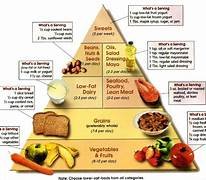
Final Thoughts: Your Weight Loss Journey
Weight loss is a personal journey that requires patience, dedication, and a holistic approach. By embracing balanced nutrition, regular exercise, mental resilience, and healthy habits, you can achieve and maintain your weight loss goals.
Remember:
- It’s Not Just About the Scale: Focus on overall health and well-being rather than just weight.
- Listen to Your Body: Be attuned to your body’s signals and adjust your approach as needed.
- You Are Not Alone: Seek support and encouragement from others on similar journeys.
Your path to a healthier, happier you starts today. Take the first step, stay committed, and celebrate the progress you make along the way.
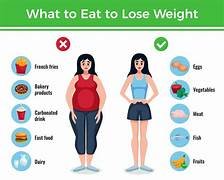
Building a Sustainable Lifestyle
Creating Lasting Habits
To achieve and maintain weight loss, it’s essential to build sustainable habits that integrate seamlessly into your daily life. Here are some strategies to help you create a lifestyle that supports your goals:
1. Make Small Changes
Start with small, manageable changes to your routine rather than drastic overhauls. This approach makes it easier to stick with your new habits. For example, if you want to eat more vegetables, try adding one extra serving to your meals each day.
2. Meal Prep for Success
Meal prepping can save time and help you make healthier choices. Set aside a few hours each week to prepare meals and snacks in advance. This way, you’ll have nutritious options ready when hunger strikes, reducing the temptation to reach for unhealthy foods.
3. Incorporate Movement into Your Day
Find ways to increase physical activity throughout your day without necessarily hitting the gym. Take the stairs instead of the lift, walk or cycle for short errands, or do a quick workout during your lunch break. Every bit of movement counts!
Mindful Eating Practices
Practising mindful eating can help you develop a healthier relationship with food. Here are some techniques to consider:
- Eat Without Distractions: Turn off the TV and put down your phone during meals to fully engage with your food. This can help you enjoy your meal and recognise when you’re satisfied.
- Chew Slowly: Take your time to chew each bite thoroughly. This not only enhances the taste but also aids digestion and allows your body to signal fullness more effectively.
- Listen to Your Body: Pay attention to hunger and fullness cues. Eat when you’re hungry and stop when you’re satisfied, rather than eating out of habit or boredom.
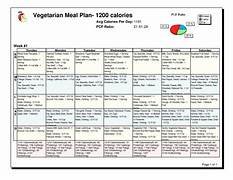
The Importance of Self-Compassion
Be Kind to Yourself
Weight loss is a journey filled with ups and downs. It’s important to practise self-compassion along the way. Understand that setbacks are normal, and don’t be too hard on yourself if you slip up. Instead, focus on what you can learn from these experiences and how to move forward.
Embrace Progress Over Perfection
Perfection is an unrealistic standard. Instead of striving for flawless adherence to your diet or exercise routine, focus on making progress. Celebrate small victories, whether it’s fitting into a pair of jeans you haven’t worn in years or choosing a healthy meal over junk food.
Staying Educated
Seek Knowledge
Continuously educating yourself about nutrition, exercise, and wellness can empower you to make informed choices. Consider reading books, attending workshops, or following reputable health blogs to stay updated on the latest findings and trends in weight management.
Consult Professionals
If you’re feeling overwhelmed or unsure about your approach, don’t hesitate to seek help from professionals. Nutritionists, dietitians, and personal trainers can provide personalised guidance tailored to your specific needs and goals.

Building a Support Network
Surround Yourself with Positivity
Having a strong support network can make a significant difference in your weight loss journey. Surround yourself with friends, family, or community members who are encouraging and share similar goals.
Join Support Groups
Consider joining weight loss or fitness groups, either in-person or online. Sharing experiences, challenges, and successes with others can provide motivation and accountability.
Celebrating Your Journey
Acknowledge Your Efforts
As you progress on your weight loss journey, take time to acknowledge the effort you’ve put in. Reflect on how far you’ve come and the positive changes you’ve made in your life. This self-recognition can boost your motivation to keep going.
Create Non-Food Rewards
Celebrate milestones with rewards that don’t involve food. Treat yourself to a new outfit, a spa day, or a fun activity you’ve wanted to try. This can help reinforce positive behaviours and keep you motivated.
Conclusion: Your Path to a Healthier You
Embarking on a weight loss journey is about more than just the numbers on a scale. It’s a holistic process that encompasses physical health, mental well-being, and lifestyle changes. By focusing on balanced nutrition, regular exercise, and a positive mindset, you can cultivate habits that lead to lasting success.
Remember, your journey is unique, and there will be challenges along the way. Stay committed, be patient with yourself, and embrace the process. Every small step you take brings you closer to your goals, and the rewards of improved health, confidence, and happiness are worth the effort.
Are you ready to take the first step towards a healthier, happier you? Begin today, and let your transformation unfold!
Incorporating Lifestyle Changes for Long-Term Success
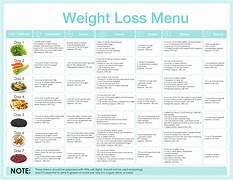
Understanding Your Relationship with Food
One of the keys to successful weight loss is understanding your relationship with food. This means identifying emotional triggers that lead to overeating or unhealthy eating patterns. Take the time to reflect on your eating habits:
- Emotional Eating: Are there certain emotions that drive you to eat when you’re not hungry? For instance, stress, boredom, or sadness can lead to mindless snacking. Recognising these patterns can help you find alternative coping strategies.
- Food as Reward: Many people use food as a reward for accomplishments or as a comfort during tough times. Consider other ways to reward yourself that don’t involve food, such as engaging in a hobby or spending time with loved ones.
Practising Gratitude
Cultivating an attitude of gratitude can enhance your weight loss journey. By focusing on the positive aspects of your life and what your body can do rather than solely on appearance, you can improve your mental well-being.
- Daily Journaling: Keep a gratitude journal where you jot down things you appreciate about your life and your body. This can help shift your mindset towards positivity and self-acceptance.
- Mindfulness Practices: Incorporate mindfulness or meditation into your routine. These practices can help reduce stress and promote a healthier relationship with food and your body.
Emphasising Flexibility in Your Plan
Be Adaptable
Life is unpredictable, and rigid plans can lead to frustration. Embrace flexibility in your approach to weight loss. This doesn’t mean abandoning your goals; rather, it means being willing to adjust your plans as needed.
- Plan for Social Events: When attending parties or gatherings, don’t deprive yourself. Instead, plan how you will navigate these situations. You might choose to eat a healthy snack before attending or opt for smaller portions of your favourite treats.
- Listen to Your Body’s Needs: Some days you may feel more energetic and motivated to exercise, while other days you might need rest. Pay attention to how your body feels and adjust your activities accordingly.
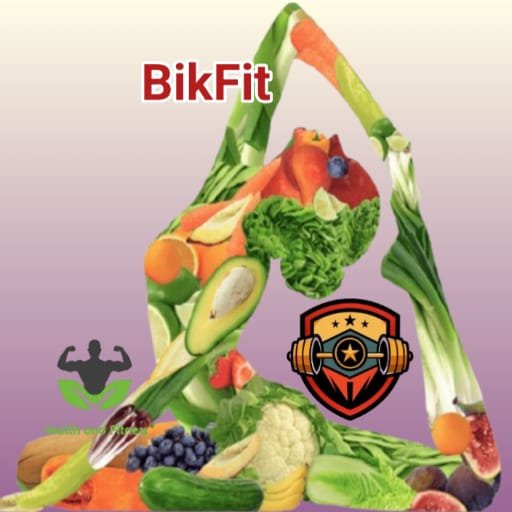
Avoid All-or-Nothing Thinking
All-or-nothing thinking can sabotage your progress. Just because you didn’t stick to your plan perfectly doesn’t mean you should give up. Instead, focus on the overall picture and make adjustments as needed.
- Practice Harm Reduction: If you find yourself indulging more than you planned, remember that one meal or day of overeating won’t derail your progress. Refocus on your healthy habits the next day.
- Cultivate a Growth Mindset: View challenges and setbacks as opportunities for growth. This mindset can help you remain resilient in the face of difficulties.
Tracking Your Progress
Different Ways to Monitor Progress
Tracking your weight loss journey doesn’t have to be limited to just the scale. Consider incorporating various methods to assess your progress:
- Measurements: Keep track of your body measurements, such as waist, hips, and chest. These can provide a more comprehensive view of your progress, especially when you’re building muscle.
- Fitness Goals: Set fitness-related goals, such as improving your running speed or lifting heavier weights. Achieving these can enhance your confidence and motivation.
- Mood and Energy Levels: Pay attention to how you feel emotionally and physically. Increased energy levels and a better mood can indicate positive changes that aren’t reflected in numbers.
Use Technology to Your Advantage
There are numerous apps and tools available that can help you track your food intake, exercise, and overall progress. Find one that suits your needs and preferences:
- Food Diary Apps: Use apps like MyFitnessPal or Lose It! to log your meals and stay accountable.
- Fitness Trackers: Devices like Fitbit or Apple Watch can help you monitor your physical activity, sleep, and heart rate, providing valuable insights into your health.
Overcoming Weight Loss Plateaus
Recognising Plateaus
Plateaus are a normal part of the weight loss process. They occur when your body adjusts to your new weight and activity level, making it more challenging to continue losing pounds. Recognising that this is a common experience can help you remain patient.
Strategies to Break Through a Plateau
- Reassess Your Caloric Intake: As you lose weight, your body requires fewer calories. Re-evaluate your daily caloric needs and adjust your intake accordingly.
- Change Your Workout Routine: Introduce variety into your exercise regimen by trying new workouts or increasing the intensity. This can help challenge your body in new ways.
- Incorporate More Strength Training: Building muscle through strength training can increase your metabolic rate, helping you burn more calories at rest.
- Review Your Diet: Consider keeping a food journal for a week to identify any sneaky calories or unhealthy choices that may have crept in.
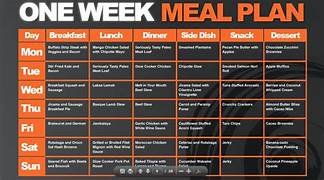
The Role of Professional Support
Seeking Guidance
If you’re struggling to achieve your weight loss goals, consider seeking professional support. Nutritionists, dietitians, and personal trainers can provide personalised guidance tailored to your specific needs.
Group Programs
Joining a structured weight loss program can provide accountability and support. Many programs offer group meetings, online resources, and one-on-one coaching to help you stay on track.
Conclusion: Embrace Your Transformation
Your weight loss journey is a deeply personal experience that involves more than just changing your diet or exercise habits. It’s about transforming your lifestyle and mindset to foster lasting health and well-being. As you navigate this path, remember:
- Be Patient: Sustainable change takes time. Focus on gradual progress rather than quick fixes.
- Celebrate Every Step: Acknowledge your achievements, no matter how small, and recognise the effort you’ve put in.
- Prioritise Health Over Aesthetics: Embrace the many benefits of a healthier lifestyle beyond weight loss, such as improved mood, energy, and overall quality of life.
Embarking on this journey can lead to profound changes in how you view food, exercise, and yourself. By adopting a holistic approach that includes balanced nutrition, regular activity, self-compassion, and a supportive community, you can achieve your goals and create a healthier, happier life.
Take that first step today, and let your journey towards transformation begin!

